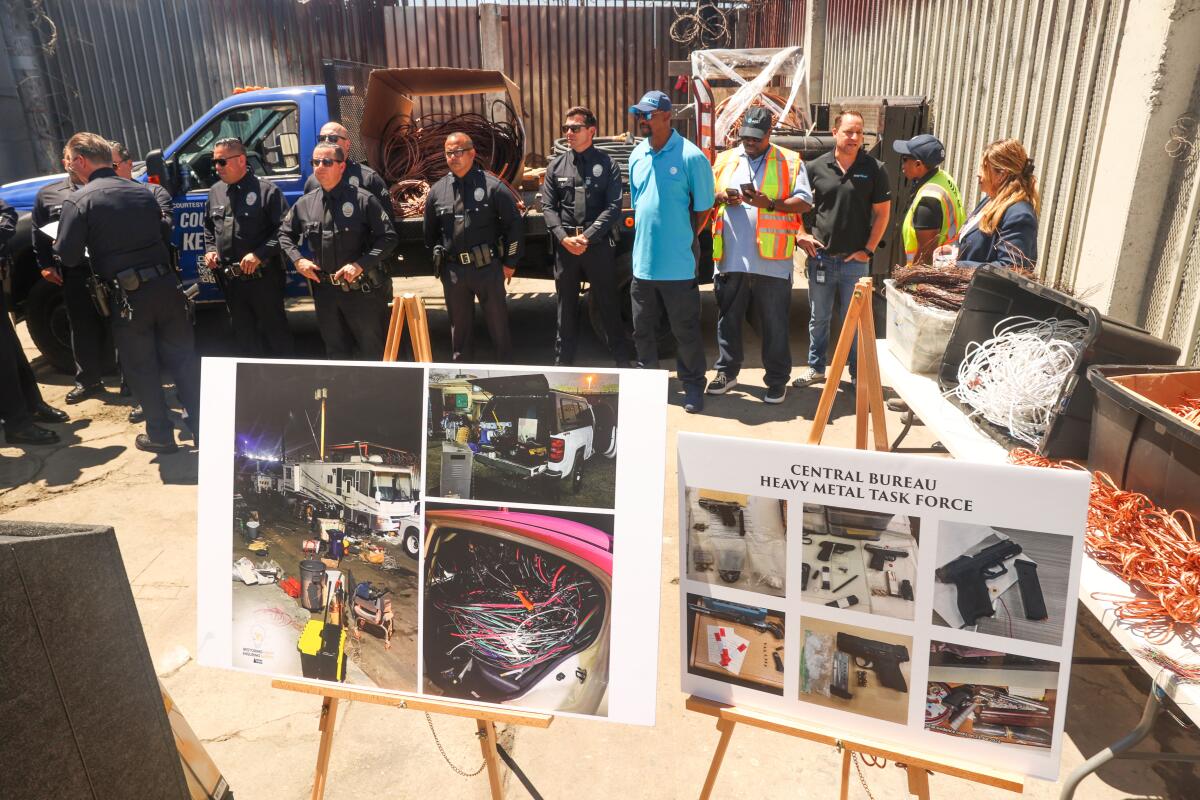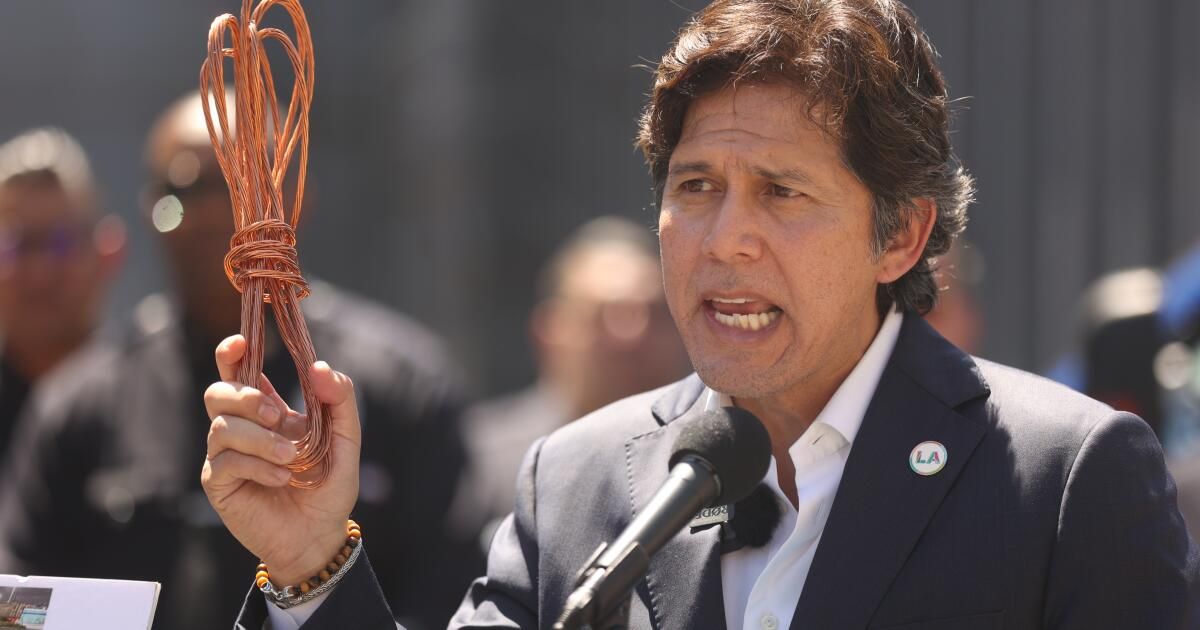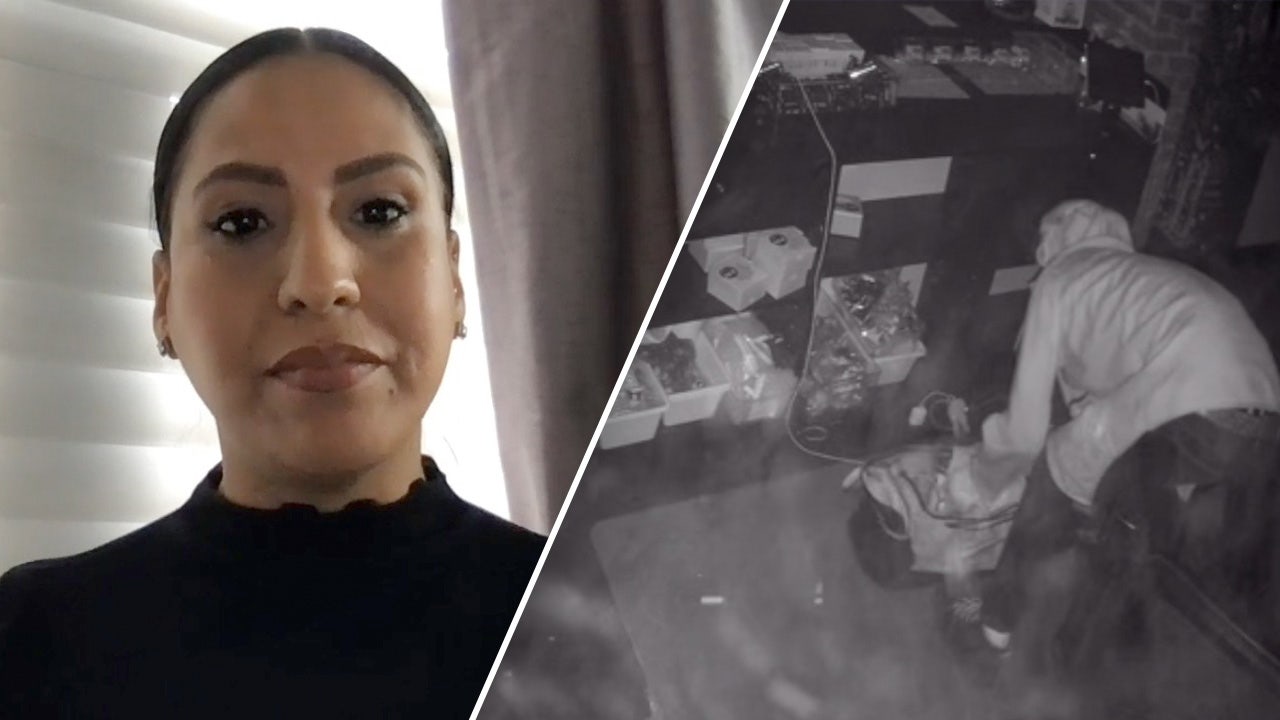Eighty-two arrests have been made in a recent surge to combat a “growing epidemic” of copper wire thefts, city officials announced Tuesday.
City Council members Kevin de León and Traci Park attributed the arrests and 2,000 pounds of recovered wire to their copper wire task force, dubbed the Heavy Metals Task Force, which was formed in late February in partnership with the Los Angeles Police Department and the Bureau of Public Lighting.
The initiative is the “most aggressive and proactive effort” to curb copper and telecommunications cable thefts, which have left predominantly working-class neighborhoods without streetlights or internet service, said Peter Brown, communications director for De Leon.
The Los Angeles Police Department arrested 82 people and seized 2,000 pounds of stolen copper wire.
(Michael Blackshire/Los Angeles Times)
Standing over the recovered cable, as well as the saws, bolt cutters and drills used to remove metal from public infrastructure, De Leon said 60 of the 82 people arrested were being pursued on felony charges.
“Our message is very clear to the criminals who are stripping the city piece by piece: The city of Los Angeles is no longer your ATM,” De Leon said during a news conference Tuesday, calling the results a “significant victory.”
Deputy Chief Michael Oreb of the Los Angeles Police Department's Central Bureau said authorities have deployed 26 task force operations, from high-visibility patrols to undercover actions. On East 16th Street near Butte Street Junction, the site of Tuesday's announcement, police on Monday dismantled a wire-stripping crew that would use the alley as a place to store stolen material.
Oreb said the robbers often recruited people suffering from drug addiction to help carry out the scheme.
“They were doing this as a way to fund their narcotics addiction, picking specific locations where they knew it was easy to get the cable and bringing it here to the group that would ultimately take it and sell the scrap,” Oreb said.

A graphic shows stolen copper wire at a news conference in Los Angeles on Tuesday.
(Michael Blackshire/Los Angeles Times)
Authorities have also recovered nine firearms and are investigating “questionable activity” at scrap yards, recycling centers and other facilities that would receive the stolen cable.
Much of the stolen cable was found in recreational vehicles that Park said were being used to “provide cover and shelter for these criminal acts.”
“As we struggle here in Los Angeles with a very real homeless emergency, it is beyond perverse that copper wire thieves are taking advantage of the situation to use recreational vehicles as housing and carry out their crimes,” he said.
Both Park and De Leon stressed that the theft of copper wire was not a “victimless crime,” defying sentiments raised at a City Council meeting in February when the task force was put to a vote.
Council members Eunisses Hernandez and Hugo Soto-Martinez voted against the motion, which passed 13-2, saying there should be more emphasis on preventative rather than punitive efforts.
The task force, which was modified “due to the theft of items beyond the copper wire,” will be reinforced with an additional $200,000 from De Leon’s district, he said Tuesday.
De Leon and Park also filed two motions Tuesday to continue their efforts, one of which directed the Bureau of Public Lighting to mark its copper wire as city property.

The theft of copper cables has left neighborhoods without adequate street lighting.
(Michael Blackshire/Los Angeles Times)
The other motion requests that City Attorney Hydee Feldstein Soto draft an ordinance prohibiting the possession of telecommunications cables by any person or company not affiliated with telecommunications companies.
The cables are stolen and burned or melted to expose the copper wires, which are then sold to metal recyclers, the motion said, leaving communities without data services.
“We are trying to send a message: think twice, because if we catch you with [stolen wires]“You’re going to get into big trouble,” De Leon said.












